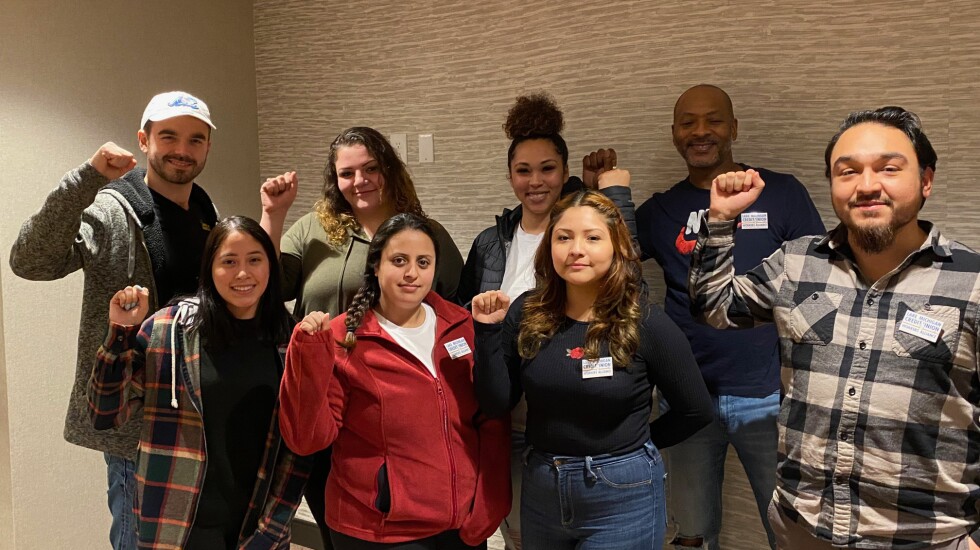In this month's roundup of American Banker's favorite stories: a deep-dive into how 2022 accelerated the decline of overdraft fees, Zelle's plan for addressing fraudulent transactions, the National Credit Union Administration opens the doors for fintech and credit union partnerships for lending and more.

Judge's report hammers three ex-Wells Fargo executives
The three executives will be ordered to pay a combined $18.5 million in civil money penalties if the judge's recommendations are adopted by acting Comptroller of the Currency Michael Hsu. In addition, both Julian and Russ Anderson would be banned from working in the banking industry.

Five types of risks that threaten bank-fintech partnerships
Banks have been increasingly teaming up with financial technology companies to streamline processes like payments, underwriting and app development. Some banks offer banking-as-a-service to fintechs, letting the third parties take advantage of banks' charters and deposit insurance while providing more nimble services to consumers.

10 biggest financial data breaches of 2022
Cybersecurity firm Flashpoint said in
This year, the number of consumer records leaked in breaches globally exceeded 254 million, according to Flashpoint. In the U.S. alone, data from the Maine attorney general indicates that

How 2022 hastened the decline of overdraft fees
The list includes megabanks like Citigroup, which this year became the largest U.S. bank to
It also includes regional banks such as Charlotte, North Carolina-based Truist Financial, which

How hard will it be for Zelle to refund for fraud?
In theory, it sounds simple. The policy would standardize reimbursement policies in 2023, so that if a bank finds that a user was tricked into a false P2P transfer on Zelle, the receiving bank's account would send the funds back to the victim's bank to reimburse the consumer. The program would cover fraudulent transfers, but would not cover erroneous payment due to typos or products purchased in error.
The details are where this gets complicated. The step that involves the receiving bank returning a disputed payment could also include a requirement that the bank cover at least part of the cost of the return, according to Trace Fooshee, a strategic advisor in Aite-Novarica's Fraud & AML practice.

In cross-border payments, the disrupted have become the disruptors
It's not just the competitive threat from fintechs developing faster, cheaper and more transparent cross-border payment options. The changing economy is now adding urgency for legacy cross-border providers to modernize their services.
The overall cost of using the correspondent banking model, which remains the status quo for bank-initiated cross-border payments, is increasing as interest rates climb and the expense and complexity of regulatory compliance rises.

Are banking-as-a-service vendors partly to blame for banks' fintech problems?
But while the banks are in the hot seat, some industry participants believe banks should not shoulder all the blame for these sometimes hastily arranged partnerships. Third parties that connect banks to fintechs, providing matchmaking services and technology, are creating a systemic risk and perhaps should take some responsibility, critics say. These third parties are sometimes called banking-as-a-service vendors, sometimes BAAS platform providers, sometimes simply "connectors." Synapse and Treasury Prime fit in this category, though there are differences between them.

NCUA clears path for more credit union-fintech lending partnerships
The current regulations only allow a federal credit union to purchase loans made to its members from any source if those loans amount to less than 5% of the purchasing credit union's unimpaired capital and surplus.
Board member Rodney Hood said there are several exceptions to the cap, "but they are cumbersome to understand and impose a high regulatory burden."

Rooting out wrongdoing in PPP loans
In the early days of the country's grappling with COVID-19, businesses deemed nonessential closed their doors and Americans were encouraged to stay home. Those steps sent the unemployment rate skyrocketing.
Congress acted quickly to try and ensure that as many people kept receiving a paycheck as possible. Thus, the

'We aren't being recognized': Workers' union bid at one financial institution
Members of the LMCU Workers Alliance notified executives of the $11.8 billion-asset institution in Caledonia, Michigan, of their intent to unionize with the Communications Workers of America in a
As part of the campaign, employees of LMCU's South Division Avenue branch in Wyoming, Michigan, filed a petition with the National Labor Relations Board to organize an election and officially register with a national organization.





